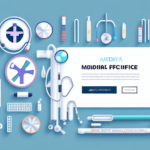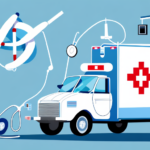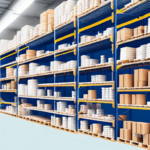Introduction to Medical Courier Drivers
A medical courier driver is a specialized transportation professional responsible for transporting sensitive medical supplies between locations. These professionals play a critical role in ensuring that medical facilities have timely access to the supplies necessary for providing quality patient care. The importance of medical courier drivers has been underscored during global health crises, such as the COVID-19 pandemic, where the demand for medical supplies surged dramatically.
The Importance of Medical Courier Drivers in Healthcare
Medical courier drivers are indispensable to the healthcare industry, ensuring that vital medical supplies reach their destinations on time and in optimal condition. They transport a wide array of items, including:
- Laboratory specimens
- Pharmaceuticals
- Medical equipment
- Blood and tissue samples
- Clinical trial specimens
Timely and accurate delivery of these supplies is essential for patient care, enabling accurate diagnostics, effective treatments, and seamless medical operations. According to a study published in the Journal of Clinical Logistics, efficient medical courier services can improve hospital operations by 20%, highlighting their significance in the healthcare supply chain.
Qualifications and Skills Required to Become a Medical Courier Driver
Becoming a medical courier driver requires a combination of specific qualifications and skills to handle the unique demands of the role:
- Valid Driver’s License: A current and clean driver’s license is mandatory.
- Clean Driving Record: Employers typically require a record free of major infractions.
- Knowledge of Medical Supplies: Understanding of medical supplies and equipment is essential.
- Handling Sensitive Materials: Ability to transport and manage sensitive medical items with care.
- Interpersonal Skills: Good communication skills for interacting with healthcare professionals.
- Independence and Reliability: Capability to work independently and meet strict deadlines consistently.
Additionally, medical courier drivers must undergo specialized training covering specimen handling, infection control, and transportation regulations. Certifications such as the Hazardous Materials Transportation Certification may also be required.
Safety Protocols and Regulations for Medical Courier Drivers
Adhering to stringent safety protocols and regulations is paramount for medical courier drivers to ensure the safety of both the public and the medical supplies they transport. Key regulations and protocols include:
- Department of Transportation (DOT) Regulations: Guidelines covering driver training, vehicle maintenance, and safety inspections.
- Hazardous Materials Transportation Regulations (HMR): Standards for transporting hazardous materials, including certain medical supplies and waste, necessitating specialized training and certification.
- Occupational Safety and Health Administration (OSHA) Regulations: Requirements for workplace safety, including the handling and storage of medical supplies.
In addition to regulatory compliance, medical courier drivers must follow specific safety protocols, such as:
- Proper sealing and labeling of containers
- Use of personal protective equipment (PPE) when handling certain supplies
- Maintaining strict temperature controls for temperature-sensitive items
These measures are crucial to preserving the efficacy and safety of medical supplies during transportation.
Technology in Medical Courier Services
Advancements in technology have significantly enhanced the efficiency and reliability of medical courier services. Key technological innovations include:
- Global Positioning System (GPS): Enables precise navigation, reducing travel time and optimizing routes.
- Barcode Scanning: Facilitates accurate tracking of items during transportation, ensuring correct delivery destinations.
- Drones: Some companies are experimenting with drone deliveries to reach remote or hard-to-access areas, especially during emergencies.
- Temperature-Controlled Containers: Equipped with sensors and real-time monitoring to maintain required temperatures for sensitive supplies.
According to a report by Supply Chain Digital, the integration of advanced technology in supply chain management can lead to a 15% increase in efficiency and a 10% reduction in operational costs.
Challenges Faced by Medical Courier Drivers and Solutions
Medical courier drivers encounter several challenges in their role, including:
- Traffic and Road Conditions: Navigating through congested or poorly maintained roads can delay deliveries.
- Ensuring Supply Integrity: Maintaining the condition of sensitive medical supplies during transit.
- Time Management: Meeting tight delivery deadlines consistently.
To overcome these challenges, medical courier drivers can employ the following strategies:
- Advanced Training: Training in safe driving techniques and effective time management.
- Utilizing Technology: GPS and real-time traffic data to find the most efficient routes.
- Proper Equipment: Using temperature-controlled containers and secure packaging to preserve supply integrity.
- Effective Communication: Maintaining clear communication with healthcare facilities to ensure accurate and timely deliveries.
The Impact of COVID-19 on Medical Courier Services
The COVID-19 pandemic significantly heightened the demand for medical courier services. Healthcare facilities relied heavily on couriers to transport critical medical supplies, including personal protective equipment (PPE), vaccines, and testing kits. Despite facing challenges such as lockdowns and disrupted transportation networks, medical courier drivers ensured the safe and reliable delivery of essential supplies.
According to a Health Affairs study, the pandemic accelerated the integration of digital technologies in medical logistics, leading to improvements in tracking and delivery efficiency. Moreover, the resilience demonstrated by medical courier services during the pandemic has highlighted their vital role in the healthcare supply chain.
Future Trends and Innovations in Medical Courier Services
The future of medical courier services is poised for significant advancements driven by technological innovation and evolving healthcare needs. Key trends and predictions include:
- Increased Use of Automation: Automation in sorting and delivery processes to enhance speed and accuracy.
- Expansion of Drone Deliveries: Wider adoption of drone technology for delivering supplies to remote or disaster-affected areas.
- Enhanced Data Analytics: Utilizing big data to predict demand patterns and optimize logistics.
- Sustainable Practices: Implementation of eco-friendly transportation methods to reduce the environmental impact.
- Integration with Healthcare IT Systems: Seamless integration with electronic health records (EHR) for real-time tracking and coordination.
These innovations are expected to improve the efficiency, reliability, and sustainability of medical courier services, further solidifying their essential role in healthcare delivery.
Choosing the Right Medical Courier Service Provider
Selecting an appropriate medical courier service provider is crucial for healthcare facilities to ensure the safe and reliable transportation of medical supplies. When evaluating potential providers, consider the following factors:
- Experience and Expertise: Proven track record in handling medical logistics.
- Regulatory Compliance: Adherence to all relevant safety protocols and transportation regulations.
- Technology and Tracking: Advanced tracking systems for real-time monitoring of shipments.
- Reliability and Responsiveness: Ability to deliver consistently on time and respond promptly to issues.
- Cost-Effectiveness: Competitive pricing without compromising on service quality.
- Quality Control: Robust quality assurance processes to maintain the integrity of medical supplies.
By carefully considering these factors, healthcare facilities can partner with medical courier service providers that best meet their logistical needs and support their commitment to patient care.
In-House vs. Outsourced Medical Courier Services
Healthcare facilities often face a strategic decision between maintaining an in-house team of medical courier drivers or outsourcing these services to specialized providers. Both approaches offer distinct advantages:
- In-House Teams:
- Greater control over logistics and delivery schedules.
- Customization of services to meet specific facility needs.
- Potential cost savings for large facilities with high-volume transportation requirements.
- Outsourced Services:
- Access to specialized expertise and advanced technologies.
- Improved operational efficiency by leveraging the provider’s logistics infrastructure.
- Reduced overhead costs associated with maintaining an in-house team.
- Scalability to handle varying volumes of deliveries.
The choice between in-house and outsourced courier services should align with the facility’s size, budget, logistical needs, and strategic goals. Smaller facilities or those with fluctuating transportation demands may benefit more from outsourcing, while larger institutions with consistent high-volume needs might find maintaining an in-house team more advantageous.
Cost-Effective Strategies for Managing Medical Logistics
Efficient management of medical logistics is essential for healthcare facilities to control costs while ensuring the timely delivery of supplies. Implementing the following strategies can enhance cost-effectiveness:
- Consolidate Deliveries: Combine multiple deliveries into a single trip to reduce transportation costs and improve efficiency.
- Implement Inventory Management Systems: Utilize systems that track inventory levels in real-time to minimize waste and avoid overstocking.
- Optimize Routing: Use GPS and real-time traffic data to plan the most efficient delivery routes, reducing travel time and fuel consumption.
- Leverage Technology: Invest in advanced tracking and monitoring systems to enhance visibility and control over shipments.
By adopting these strategies, healthcare facilities can streamline their logistics operations, minimize costs, and ensure the reliable delivery of medical supplies.
Maintaining Quality Control in Medical Supply Chain Management
Ensuring quality control in the medical supply chain is vital for the safety and efficacy of medical supplies. Best practices for maintaining quality control include:
- Thorough Inspection: Inspect all medical supplies before and after transportation to ensure they are intact and properly stored.
- Specialized Packaging: Use appropriate packaging materials to protect sensitive items from damage and contamination.
- Temperature Control: Maintain required temperature settings during transport to preserve the integrity of temperature-sensitive supplies.
- Effective Communication: Establish clear communication channels between courier drivers and healthcare facilities to ensure accurate deliveries.
- Inventory and Tracking Systems: Implement systems to monitor and track supplies throughout the transportation process, ensuring accountability and traceability.
Adhering to these practices helps healthcare facilities maintain high standards of quality control, ensuring that medical supplies remain safe and effective from dispatch to delivery.
Conclusion
Medical courier drivers are a vital component of the healthcare supply chain, ensuring the timely and safe delivery of essential medical supplies. As the healthcare industry continues to evolve, advancements in technology and logistics practices are set to further enhance the efficiency and reliability of medical courier services. Whether healthcare facilities choose to maintain in-house teams or outsource their courier needs, prioritizing qualifications, safety protocols, and quality control will remain paramount in delivering optimal patient care.






















